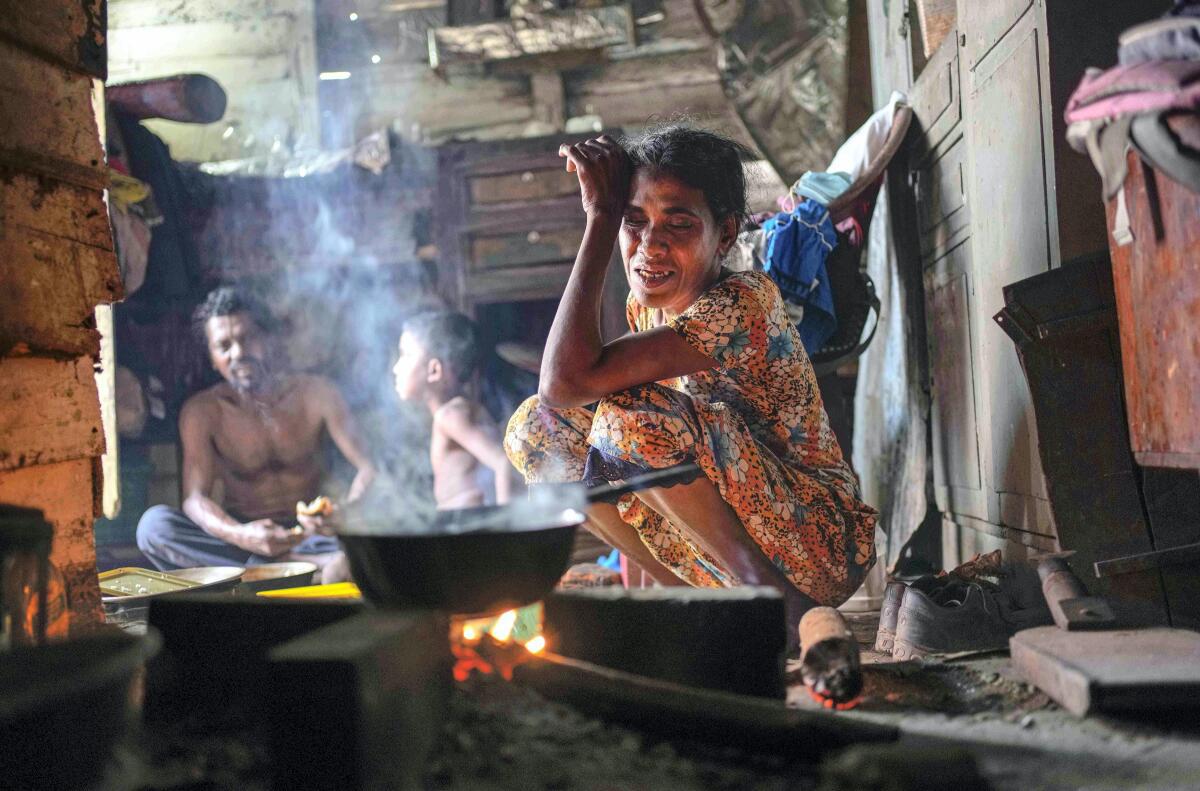
The latest report released by the World Bank has revealed that poverty in Sri Lanka has increased over the past four years from 11 percent in 2019 to 26 percent in 2024 putting more than a quarter of the Sri Lankan population living in poverty.
Titled “Bridges to Recovery” the report describes how the unprecedented economic crisis that engulfed the country in 2022 had affected the masses. “Households have adopted risky coping strategies to deal with lower incomes and price pressures, including using savings, taking on more debt, and limiting their diets. Food insecurity rose during the second half of 2023, with 24 percent of households being food insecure.” The report can be accessed here.
The report finds that food insecurity and malnutrition have increased, while poverty has doubled and the inequalities have widened. “Approximately 60 percent of households experienced a decline in income due to reduced work hours or job losses. The implementation of recent structural reforms, including cost-reflective utility pricing and new revenue measures, helped macroeconomic stability but strained household budgets.”
The report indicates that labour market trends in Sri Lanka have been affected by widespread closures of micro-, small- and medium-enterprises. In the third quarter of 2023, the labour force participation rate in the urban sector dropped to 45.2 percent, down from 52.3 percent in 2019. Youth unemployment, especially young adults (aged from 25–29), rose to 17.7 percent between the second and third quarters of 2023.
World Bank Director for Maldives, Nepal and Sri Lanka Faris Hadad-Zervos noted,
"Sri Lanka’s economy is on the road to recovery, but sustained efforts to mitigate the impact of the economic crisis on the poor and vulnerable are critical, alongside a continuation of the path of robust and credible structural reforms. This involves a two-pronged strategy: first, to maintain reforms that contribute to macroeconomic stability and second, to accelerate reforms to stimulate private investment and capital inflows, which are crucial for economic growth and poverty reduction."
The Sri Lankan government is also in the process of privatising, commercialising or closing loss-making state-owned enterprises which has left many having to seek better-paying jobs. Sri Lanka’s already dilapidated public health and education systems have been plunged into crisis by government funding cuts.
The World Bank report states: “17.5 percent of households indicated that they limited their education expenses (including on stationery and uniforms) to deal with rising costs, and most households have changed their health treatment procedures since March 2022 due to a lack of funds.”
In March, Sri Lanka’s Department of Census and Statistics (DCS) stated that the minimum monthly expenditure per person in Sri Lanka has increased by 144 percent since 2019. The amount is calculated on the basis of what is required to fulfil the basic monthly needs of an individual, which in 2019 was 6,966 rupees ($23). This near-starvation level amount has now catapulted to 17,014 rupees per month.
Read the full report here
We need your support
Sri Lanka is one of the most dangerous places in the world to be a journalist. Tamil journalists are particularly at threat, with at least 41 media workers known to have been killed by the Sri Lankan state or its paramilitaries during and after the armed conflict.
Despite the risks, our team on the ground remain committed to providing detailed and accurate reporting of developments in the Tamil homeland, across the island and around the world, as well as providing expert analysis and insight from the Tamil point of view
We need your support in keeping our journalism going. Support our work today.
For more ways to donate visit https://donate.tamilguardian.com.

